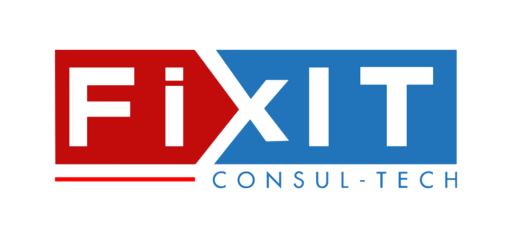Sound financial management is vital for every business, large or small. It involves bookkeeping, financial reporting, access to funding, and accurate forecasting. Business owners who manage finances effectively make smarter decisions that drive both short-term performance and long-term growth.
Keeping your business finances organized builds clarity, improves profitability, and ensures stability. In 2025, small businesses face growing financial complexity due to digital payments, cloud accounting, and changing tax regulations. The key to success is having efficient, technology-driven financial systems in place.
Whether you’re a startup or a growing company, these 10 tips to organize your business finances will help streamline accounting, save time, and boost efficiency.
1. Separate Personal and Business Finances
Mixing personal and business transactions is one of the most common (and costly) mistakes small business owners make. It complicates bookkeeping, taxes, and cash flow management.
Open a dedicated business bank account and credit card. This makes it easier to track income and expenses, generate accurate financial reports, and stay compliant with tax regulations. According to the Internal Revenue Service (IRS), not separating business and personal expenses is listed as one of the four common, costly tax errors for small businesses.
2. Use Cloud Accounting Software
Investing in cloud accounting software like QuickBooks, Xero, or FreshBooks can completely transform how you manage your business finances.
Cloud tools automate expense tracking, invoicing, and financial reporting , giving you real-time insights into your cash flow. They also make collaboration seamless between you and your accountant.
For deeper insights, you can compare different software options in our related post, QuickBooks vs Xero: Which Cloud Accounting Software is Right for You?
3. Create a Consistent Bookkeeping Schedule
Consistency is key when it comes to small business bookkeeping. Schedule time weekly or biweekly to review and record your transactions.
Regular bookkeeping helps identify missing invoices, duplicate payments, or cash flow gaps before they become major issues. It also saves you from the year-end scramble during tax season.
If bookkeeping feels overwhelming, consider outsourcing , virtual bookkeeping services can keep your books updated with minimal effort on your part.
4. Digitize and Organize Your Receipts
Gone are the days of shoeboxes full of crumpled receipts.
Use mobile apps like Expensify or Dext to scan and store receipts digitally. Many apps can integrate with your accounting system, automatically categorizing expenses for you.
Having all receipts digitized ensures audit readiness and simplifies expense reimbursement tracking. Remember, the IRS requires receipts for business expenses over $75, so maintaining a digital record is essential.
5. Monitor and Forecast Cash Flow
Cash flow is the lifeblood of any small business. Poor cash flow management is the reason 82% of small businesses fail (source: U.S. Bank Study).
Implement monthly cash flow tracking to see when money is coming in and going out. Tools like QuickBooks and Xero can generate automated forecasts, helping you plan for seasonal fluctuations and avoid shortfalls.
By keeping a close eye on cash flow, you can make informed decisions about hiring, investments, and inventory management.
6. Streamline Invoicing and Payment Processes
Late payments can derail your financial stability. To improve efficiency, automate your invoicing process with recurring billing and payment reminders.
Offer multiple payment options , bank transfers, credit cards, and digital wallets , to make it easy for clients to pay.
Setting clear payment terms (like “Net 15” or “Net 30”) ensures predictable cash inflow. Automated systems also reduce manual errors and save hours of administrative time every month.
7. Review Financial Reports Regularly
Financial reports aren’t just for accountants , they’re vital tools for business owners.
Review your profit and loss statement, balance sheet, and cash flow statement at least once a month. These reports provide insights into profitability, expenses, and debt levels.
Analyzing trends early allows you to adjust your strategy proactively , whether it’s cutting unnecessary costs or reinvesting in growth.
Pro tip: Combine this habit with tools that automate report generation for better accuracy and less manual effort.
8. Prepare for Taxes Year-Round
Don’t wait until tax season to organize your finances. Stay proactive by tracking deductible expenses and keeping your books updated year-round.
Set aside a percentage of your income each month in a separate “tax account” to avoid last-minute panic.
According to Forbes, businesses that track taxes monthly save up to 30% in penalties and late fees compared to those who wait until year-end.
Regular reconciliation also ensures your tax filings are accurate and compliant with new regulations.
9. Build an Emergency Fund
Unexpected expenses , from equipment repairs to economic downturns , can strain your finances.
Creating a business emergency fund equal to at least three to six months of expenses provides a safety cushion.
Automate transfers to this fund monthly, treating it as a non-negotiable business expense.
Having this reserve improves your business resilience and creditworthiness, making it easier to secure financing when needed.
10. Consult Financial Experts
Even with the best systems, expert guidance makes all the difference.
A professional accountant or virtual CFO can help you interpret data, optimize cash flow, and plan for growth.
They can also ensure compliance with tax laws and help you access government incentives or grants available in your region.
If you’re in healthcare or other specialized industries, you might find our post Bookkeeping for Medical Practices: How to Ensure Financial Health particularly insightful.
Bonus Tip: Automate Everything You Can
Automation saves time, reduces human error, and ensures consistency.
You can automate recurring invoices, expense categorization, financial reports, and even tax reminders.
Modern accounting systems allow AI-driven categorization, which identifies patterns in spending and improves accuracy over time.
Automation also gives you more time to focus on strategic business decisions instead of repetitive data entry.
Conclusion
When you organize business finances efficiently, you gain control, confidence, and clarity. By applying these small business bookkeeping tips, you can simplify daily operations, make smarter financial decisions, and achieve long-term stability.
And if you’re looking for a trusted partner to manage your bookkeeping or accounting systems, FixIT can help.
Our experts provide customized cloud accounting, bookkeeping, and virtual CFO services tailored to small businesses.
Reach out to us today to streamline your financial systems and focus on what truly matters , growing your business.

